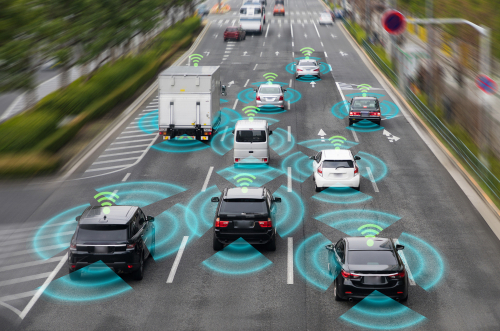
In a new report, the United States Chamber of Commerce recently laid out the potential social and economic benefits of passenger autonomous vehicles (AVs), and assessed several related adoption scenarios that highlighted the need for advance national regulatory action.
“As autonomous vehicle technology moves from proving grounds to city streets, this report quantifies the tremendous benefits these cars bring to consumers, businesses, and the economy, and presents a historic opportunity for the U.S. to lead in this industry of the future,” Jordan Crenshaw, senior vice president of the U.S. Chamber’s Technology Engagement Center (C_TEC), said. “However, autonomous vehicle policy in the U.S. is stuck in neutral, making it challenging to unlock the promising benefits of this transformational technology. Every year policymakers delay action pushes us further away from the day we can save more lives and help mobility-impaired Americans. This analysis should give policymakers a jump-start in championing a national AV framework that promotes the safe development, testing, and deployment of autonomous vehicles and reaffirms American technological leadership.”
The report utilized the latest economic models to address several scenarios built around the introduction and adoption of autonomous vehicles. It also measured the capability of AVs to reduce traffic accidents and fatalities, improve mobility and access, reduce greenhouse gas emissions and offer economic benefits for the public. In this same capacity, it analyzed geopolitical implications brought about by the AV emergence at home and abroad, and the competition the U.S. will face from foreign competitors.
If AV make up 25 percent of the U.S. vehicle fleet, the report found that they could prevent more than 1.4 million accidents and 12,000 fatalities, potentially saving $94 billion along the way. They could also enhance mobility among those with disabilities and the elderly, while reducing CO2 emissions up to 8.2 percent and NOx emissions another 8.9 percent.
With all that in mind, the Chamber also stated that the sector could become critical to boosting the American motor vehicle industry, enabling growth of new and existing industries, while providing new capabilities for historical nondrivers, the disabled and those living in areas with limited public transit access.
However, the Chamber noted that experts have pegged widespread AV adoption to varying timeframes, from 5-15 years out, depending. Still, it concluded that this timeline could be accelerated through a national AV framework and revised safety standards with room for innovation.
“The country that leads the world in autonomous vehicle innovation will set the rules of the road for a generation,” Dr. Robert Shapiro, chairman of Sonecon, LLC and the lead author for this report, said.